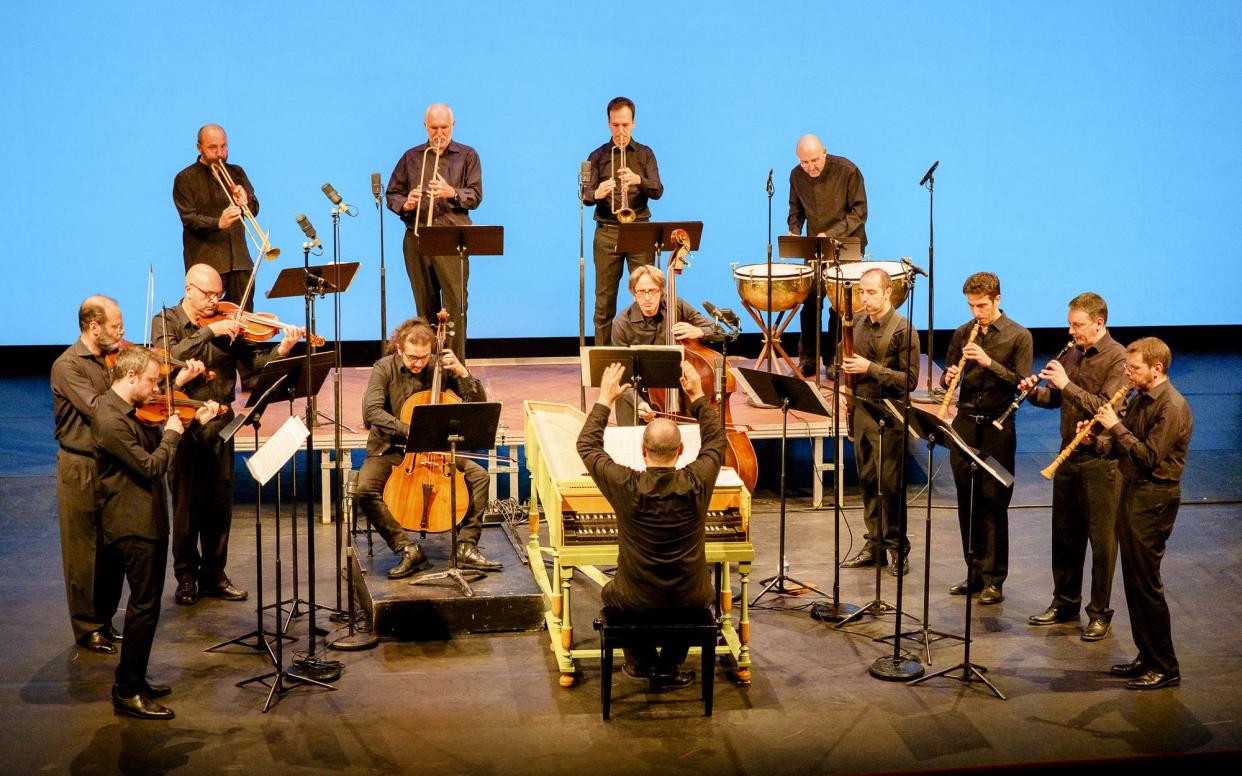Monteverdi, Il Terzo Libro di Madrigali (Madrigals Book Three), Concerto Italiano, review: bewitching beauty

Which comes first in song, the words or the music? It’s an ancient dispute, which rose to fever pitch in the Italian Baroque. Rinaldo Alessandrini, the Italian conductor and musical director of this new CD, is convinced that at that time it was definitely the words. More than 30 years ago he made wonderful recordings of the many-voiced songs of Claudio Monteverdi known as “madrigals”, with his group Concerto Italiano. They were hair-raisingly intense, more like dramatic declamations than songs.
That was quite an achievement because on the page the feelings evoked in these madrigals seem too conventional and archaic to actually move us. They’re all about abandoned nymphs bewailing their lover’s faithlessness, or distraught suitors complaining to the stars about their beloved’s cold heart. But in these recordings they came alive, in a way that was startling to listeners used to the more smooth renditions of English vocal groups.
Now Alessandri and his group Concerto Italiano are revisiting those madrigals in new recordings, of which the latest is Book Three. The words aren’t flung out with the same bitter force as in the recordings of books Seven or Eight, but as Alessandrini says in his liner notes there’s a good reason for that. These madrigals are early works, composed by the 25-year-old Monteverdi in the 1590s when the Baroque style was only just emerging. They’re composed in the intricately flowing Renaissance manner that had ruled the roost in Italy for a century, and would soon come to an end.
So in fact it’s still music which comes first here – and what incredible music it is. Monteverdi’s skill in this antique style is supreme, and the performance matches it. For sheer beauty of vocal sound this recording would be hard to beat, especially in those numbers where the feelings are light and bright, like the ones in praise of the nightingale’s song, or the joys of spring. In the court of Mantua where Monteverdi worked there were three stunning female singers, hired by the Duke to rival the three famous female singers at the neighbouring court at Ferrara, and Monteverdi often shows them off in these madrigals in passages of bewitching beauty.
But not all the radiance on this CD is of the happy kind. You might not think “radiant sadness” would be possible, but these singers achieve that miracle several times, in madrigals about loss or parting. And every now and then we’re startled by a sudden surge of intense feeling, as in the eighth madrigal Vattene pur, crudel (Go, cruel man) where the singers focus all the music’s bitter sorrow onto the first syllable.
Here the words take over in importance, but it’s only for a moment. It’s these little glimpses of the way music was heading, disturbing the calm surface of the vocal sound with unruly human passions, that make this CD so fascinating.
Monteverdi, Il Terzo Libro di Madrigali (Madrigals Book Three), Concerto Italiano is released by Naïve

